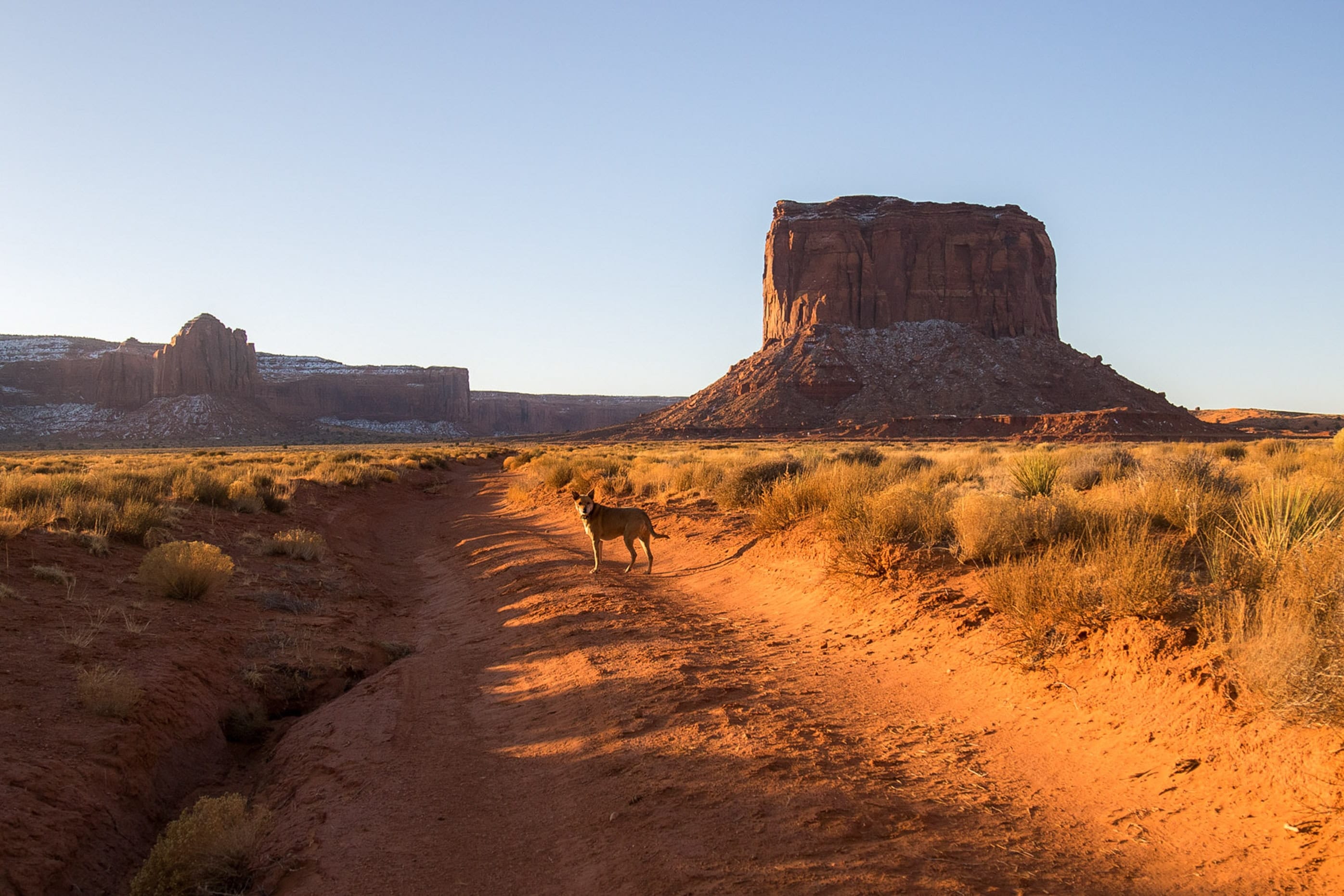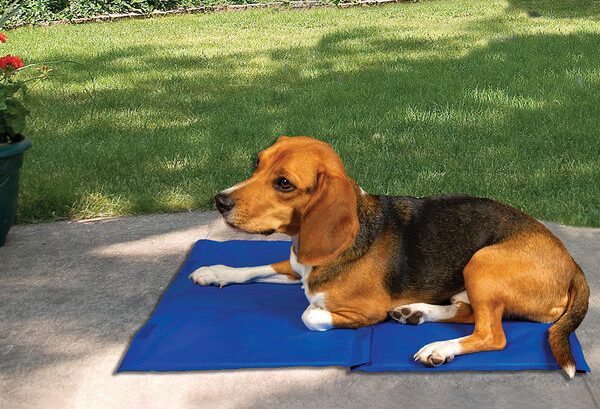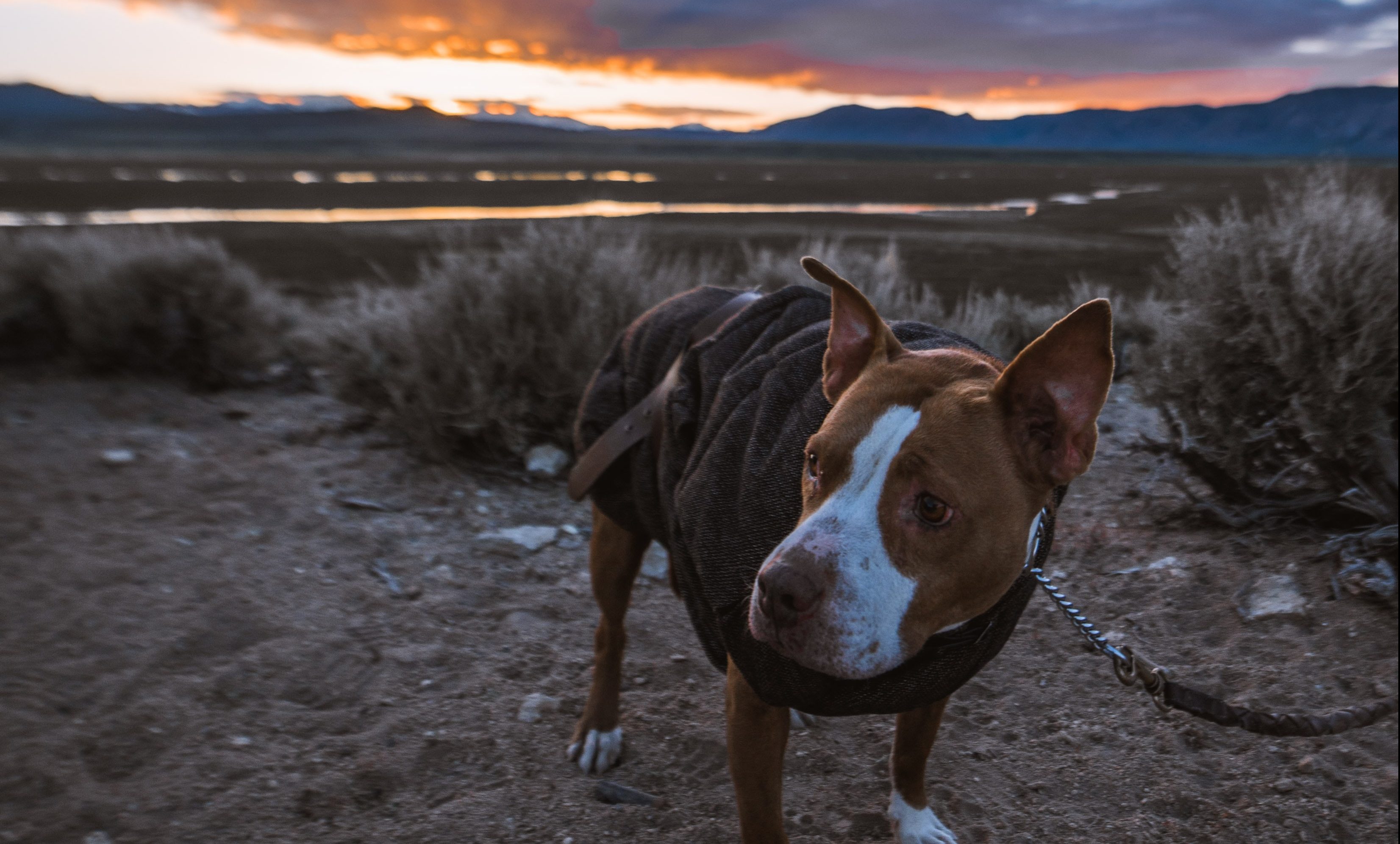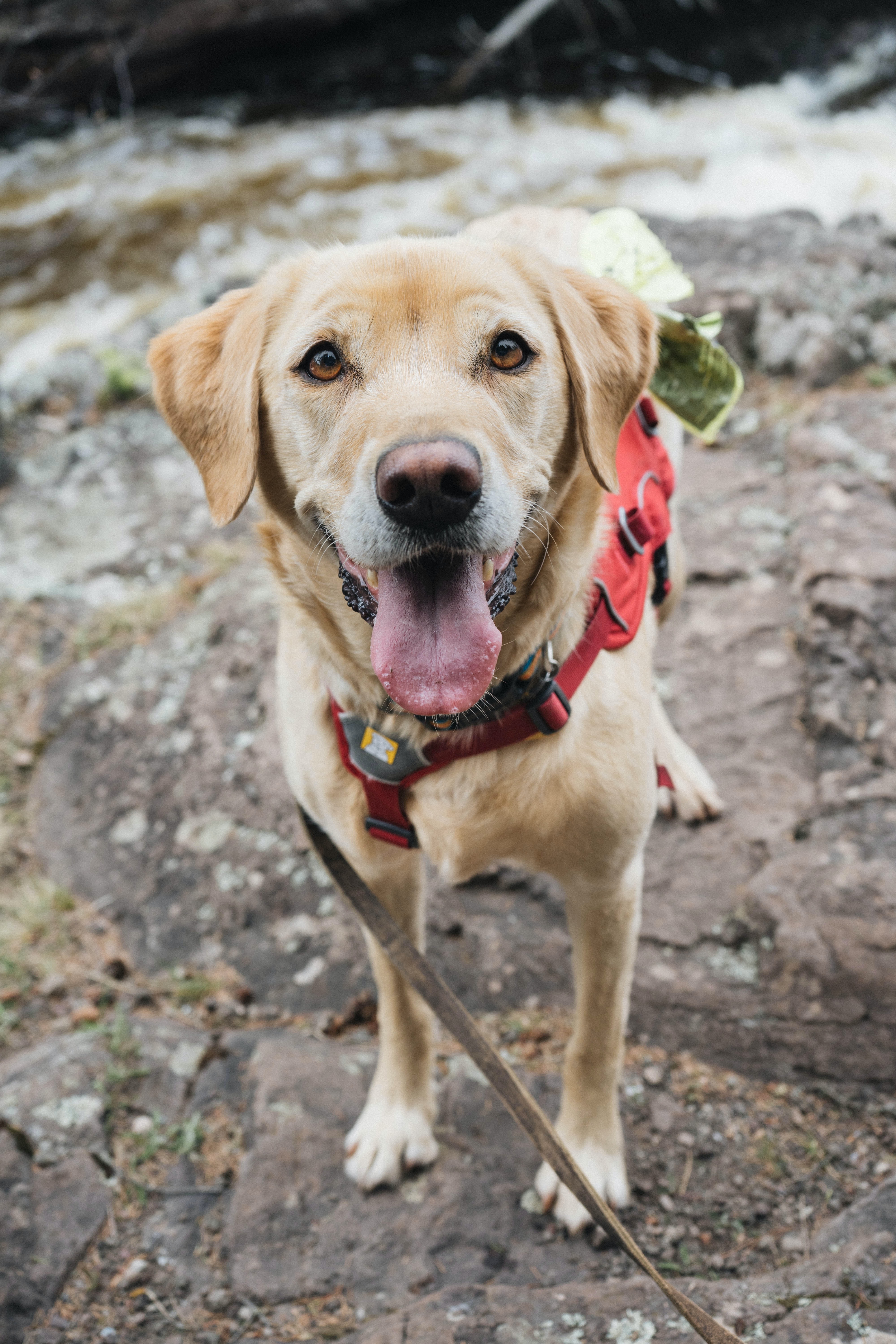RVing with pets during a heatwave isn’t the most fun way to explore the country, but sometimes you just can’t get away from the swelter. When Mother Nature catches up with us during the summer season, these three easy ways to keep RVing pets cool will help you keep them safe wherever you roam.
When the heat hits
Our first canine co-pilot was a cool coastal dog who had never experienced a “real” summer inland. But on that hot July afternoon when we landed in Moab as newbie RVers, we quickly discovered how heat affects traveling dogs. Jerry’s constant panting and reluctance to take short walks were all we needed to know that the heat was too much for him. It was time to navigate north to cooler temperatures, so we did. And in the meantime, I wish I had known these top tips for RVing with pets during a heatwave.

Photo: Halie West
Portable fans are not always helpful for pets
If you’re lucky enough to have full hookups during a heatwave, congratulations! You’ve won half the heatwave battle. Air conditioning is a lifesaver for pets and people living through a heatwave. Just don’t trust your unit enough to leave your pet home alone with it running. Heatwaves cause power outages all the time, especially in RV parks. Many RVers use a portable fan as a backup or when RV hookups lack enough amperage to run an air conditioner unit. This seems like a logical thing to do during a heatwave, but be careful.
Portable fans sometimes do what they’re supposed to. Like when slightly humid outdoor temperatures hover under 95-degrees Fahrenheit. That’s when fans can be safe for humans because we sweat throughout our bodies. The moisture cools our skin (known as “evaporative cooling“), and we feel better when a breeze hits it. But new research shows that when the outside temperature is dryer and hotter, and a person lacks air conditioning, portable fans just push hot air around and make things worse. They suck precious moisture from already dehydrated people and especially pets, who sweat mainly through their paws.
Do this instead of relying on a portable fan:

Pet cooling mat. Photo: Camping World
- Keep pets hydrated. Don’t wait until your pet is overheated to give fresh water. Consistently supply fresh, clean water with an automatic water fountain for dogs and cats. Add ice cubes to the bowl throughout the day. You can also make popsicles from Gatorade, Pedialyte or no-salt chicken or beef broth. And don’t forget to carry a portable pet water bottle when you and your pet head outdoors.
- Get a self-cooling pet mat. New technology enables these pressure-sensitive pet cooling mats to keep pets’ body temperature low. They don’t require electricity or water, and when used in combination with a nearby portable fan, they work well to cool off RVing pets during a heatwave.
- Avoid asphalt. It’s not uncommon for asphalt temperatures to reach 180-degrees Fahrenheit during extreme, hot weather. Don’t let your pet go outside until you test asphalt or concrete with the back of your hand. If you find the surface painful to the touch, your pet will too and could suffer burned paws. Help your pet go straight from the RV to grass and back again, either by carrying them, using a pet ramp, or for dogs, assisting with a dog harness that has a built-in top handle.

Photo: Robson Hatsukami Morgan
Is your pet overheated?

Photo: Lucas Ludwig
Pets don’t speak the English language, but they do communicate how they are feeling in other ways. When dogs get tired, they give signals like:
- A long, flat, dark purple extended tongue. When your dog’s tongue is dragging, it’s time to stop and cool off.
- Giving a great big “smile.” When a dog pulls their lips all the way back to expose their gums, they are trying to get more air into their lungs.
- Losing form. If your dog’s graceful trot starts looking sloppy, ears and tail droop, or suddenly plops down on walks, that’s another sign your pup is worn out.
Cats don’t suffer from heatstroke as often as dogs because they don’t participate in as much outdoor activity, but they can still feel the heat. The most common signs of heatstroke in cats or dogs include dark, red gums, uncontrolled panting, restlessness, drooling, vomiting and lethargy.
If you suspect your pet is overheated, get them into a cool spot, offer cool (not icy) water and shade. Spray tepid/cool water onto your pet’s fur and skin (especially the groin and armpits). That’s a good time to turn on a portable fan and kick start cooling. And if your pet doesn’t stop showing heatstroke signs in a few minutes, get to the nearest emergency vet for help.
Hopefully, your pets won’t ever suffer from hot weather. In fourteen years of RVing, I’ve never had it happen to mine. Looking out for them during summer is a giant responsibility, but the reward is a lifetime of adventures with easygoing companions who will never call you a fool for RVing in a heatwave.




